Third Party Claims: Workplace Injuries
Employers have a duty to provide a work environment that protects the health, safety, and welfare of employees. In many instances, an employee who is injured on the job has no recourse outside of the North Carolina Workers’ Compensation Act. However, in some cases, the acts or omissions of an employer may allow for a third-party claim in addition to a workers’ compensation action.
Top Ten Most Frequently Cites OSHA Violations
When an employer violates OSHA standards and an employee is hurt as a result, that employer opens itself up to third-party claims.
As of January 2016, these 10 standards were the ones being violated the most:
- Fall Protection
- Hazard Communication
- Scaffolding
- Respiratory Protection
- Lockout/Tagout
- Powered Industrial Trucks
- Ladders
- Machine Guarding
- Electrical – Wiring Methods
- Electrical – General Requirements
OSHA has these requirements for a reason. When standards are followed, employees are at less risk of occupational accidents. But when they aren’t, injuries and deaths usually follow.
Who Can Be Held Liable?
In multi-employer worksite situations, several potential third-party defendants exist, including:
- Creating employers: The employer that caused a hazardous condition that violates an OSHA standard.
- Exposing employers: An employer whose own employees are exposed to the hazard.
- Correcting employers: An employer who is engaged in a common undertaking, on the same worksite, as the exposing employer and is responsible for correcting a hazard.
- Controlling employers: An employer who has general supervisory authority over the worksite, including the power to correct safety and health violations or require others to correct them.
Third-party claims can also be filed against the employee’s own employer for willful, serious, or repeated OSHA violations.
- Willful violation: A violation in which the employer either knowingly failed to comply with a legal requirement (purposeful disregard) or acted with plain indifference to employee safety.
- Serious violation: A serious violation exists when the workplace hazard could cause an accident or illness that would most likely result in death or serious physical harm unless the employer did not or could not have known of the violation.
- Repeated violation: A repeated violation may exist if the employer has been cited previously for the same or a substantially similar condition, and under limited circumstances, even absent a previous citation.
To find out if you may have a third-party claim, consult with the experienced attorneys at Rhine Law Firm, P.C.
We represent clients who have been injured on the job as a result of the failure of employers to meet the applicable standards of care. Our team of attorneys has the experience required to navigate the complex issues surrounding third-party workplace injury claims. In addition to providing excellent legal services to injured clients, our team includes an authorized OSHA trainer who has testified as a workplace safety expert in third-party claims.



